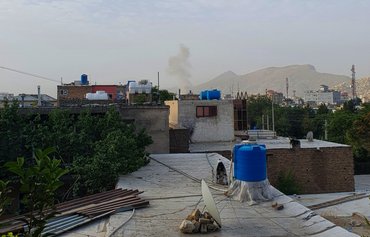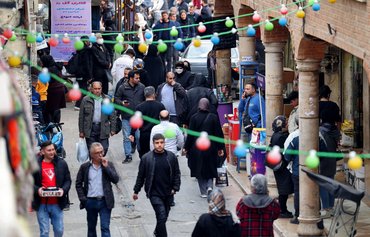PARIS -- Five months after the United States announced the killing of al-Qaeda leader Ayman al-Zawahiri in Afghanistan, the global extremist group has neither confirmed his death nor announced a new boss.
In early August, US President Joe Biden announced that US armed forces had fired two Hellfire missiles from a drone flying above Kabul, Afghanistan, striking al-Zawahiri's safe house and killing him.
But the group's propaganda arms have continued to broadcast undated audio or video messages of the Egyptian ideologue who led the group after US special forces in 2011 killed its founder, Osama bin Laden, in Pakistan.
"This is really bizarre," said Counter-Extremism Project (CEP) director Hans-Jakob Schindler. "A network only works with a leader. You need a person around which everything coalesces."
The undated footage has sparked some speculation that al-Zawahiri is still alive.
But "this would seem unlikely given the confidence with which President Biden publicly spoke about the strike", researchers Raffaello Pantucci and Kabir Taneja wrote in early December on the Lawfare website.
Successor in hiding?
Another possibility is that al-Qaeda has so far failed to make contact with al-Zawahiri's most likely successor, his former number two, who goes by the nom de guerre Saif al-Adel.
Al-Adel is a former Egyptian special forces officer and figure in the old guard of al-Qaeda, whose presence has been reported in Iran.
After joining the Egyptian extremist movement in the 1980s, he was arrested and then released, ending up in Afghanistan and joining al-Qaeda.
According to the CEP, he was arrested in Iran in 2003 and freed in 2015 in a prisoner exchange. He was still suspected of being in Iran in 2018 as one of al-Zawahiri's key deputies.
Iran's Shia rulers officially oppose al-Qaeda, yet Iran has been accused repeatedly of co-operating with the network and giving sanctuary to its leaders.
For Schindler, al-Adel "is a liability but also an asset for the Iranian regime".
According to its interests, Tehran could decide to hand him over to the United States, or allow him to attack the West.
Al-Adel also could be dead or in hiding to avoid the fate of his predecessor or the two last leaders of al-Qaeda's main rival, the "Islamic State of Iraq and Syria" (ISIS), who were killed last year.
Al-Zawahiri did not try to emulate bin Laden's charisma and influence after he took over the network but played a key role in decentralising the group.
Al-Qaeda now has autonomous franchises scattered across the Middle East, Africa and Southeast Asia that are far less dependent on central command than previously in terms of operations, funding and strategy.
'Limited importance'
Al-Qaeda analyst Barak Mendelsohn said it was hard to tell why the group was taking time to announce a new leader, adding that the delay was not "very consequential".
"Ultimately the wait reflects al-Qaeda central's limited importance," he said. "It's a symbol unifying groups across borders, but its operational relevance is low."
ISIS has faced similar difficulties in filling its leadership since Abu Bakr al-Baghdadi killed himself during a US raid in Syria in 2019.
After al-Baghdadi's two successors were killed last year, ISIS chose a relative unknown as its new chief, who claims heritage from the prophet's Quraysh tribe to boost his legitimacy.
Tore Hamming, a fellow at the International Centre for the Study of Radicalisation, said it was not essential for al-Qaeda to have a symbolic leader to speak in its name.
"We have seen with ISIS, since 2019, it does not necessarily matter," he said.
ISIS elected new caliphs, but "no one knew who they were and never heard from them. Yet still affiliates remained loyal", he said.
"For al-Qaeda it could be the same, just with a council of senior figures playing the role of an emir," he said.
"Regardless of the reason for al-Qaeda's silence, it seems to be indicative of an organisation that is not in control of its situation," said Pantucci and Taneja on the Lawfare website.
"Not responding to reports of a leader's death and instead releasing an unconvincing proof of life audiotape indicates weakness rather than studied strength," they said.
Terrorism may not have gone away, they concluded, "but it increasingly looks like the core of al-Qaeda has".

![A grab from a video broadcast on June 9, 2006, shows Ayman al-Zawahiri speaking in a new videotape, one day after a joint US-Jordanian operation killed the al-Qaeda chief in Iraq, Abu Musab Al-Zarqawi. Al-Zawahiri was reportedly killed in a US strike in Kabul in 2022. [Al-Jazeera/AFP]](/cnmi_am/images/2023/01/05/40128-zawahiri2-600_384.jpg)






